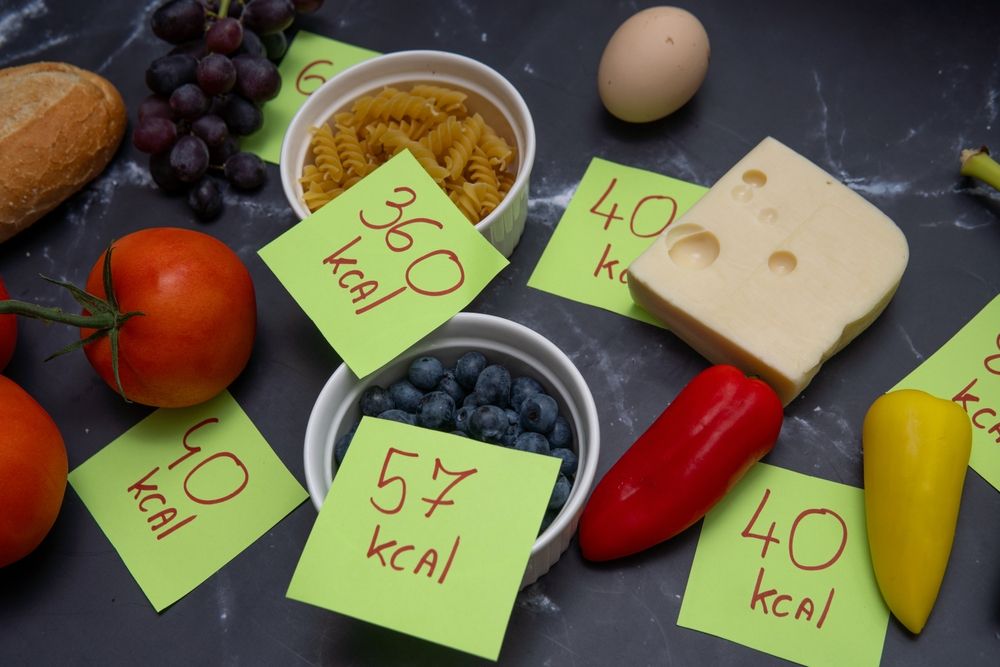Weight loss can feel overwhelming with so many approaches to choose from. The flood of advice—whether it’s about avoiding certain foods, eating more of others, or taking specific supplements—can make things confusing. You may even find yourself wondering, “Should I focus on nutrition or counting calories for weight loss?”
Despite the variety of methods out there, the core principle remains the same: successful weight loss comes down to creating an energy deficit, meaning you consume fewer calories than your body uses. This can be achieved by adjusting your eating habits, increasing physical activity, and making intentional behavior changes.
You can either focus on reducing your calorie intake or improving your nutrition by carefully selecting the foods you eat. Both methods have their benefits, but you may be wondering which is more effective or suitable for your needs. This article compares these two approaches—nutrition vs. counting calories—so you can determine which one is the best fit for you.
The Role of Nutrition in Weight Loss

Nutrition plays a vital role in weight loss because different foods affect your body in unique ways. To lose weight effectively, focus on a balanced diet that includes a variety of foods, each offering distinct health benefits. Some foods can support your weight-loss goals, while others may slow your progress if consumed in excess.
Understanding which foods align with your health goals and how much to eat is essential. Neglecting nutrition during weight loss is like trying to drive a car on an empty tank—you may eventually reach your destination, but the journey is smoother and faster when you're fueled properly.
Focusing on nutrition means incorporating a range of wholesome foods, such as lean proteins, beans, lentils, fruits, and vegetables. These foods offer different benefits:
- Legumes are rich in fiber, keeping you fuller for longer and promoting healthy digestion.
- Fruits and vegetables are also high in fiber and packed with vitamins and minerals that support overall health and boost metabolism.
- Protein helps make meals more satisfying, reducing overeating, while also supporting muscle maintenance and growth, which aids metabolism and recovery after exercise.
The Role of Calorie Counting in Weight Loss

On the other hand, weight loss fundamentally relies on creating a negative energy balance, meaning you consume fewer calories than your body needs. To effectively use calorie counting, you first need to understand how many calories your body requires to maintain its current weight, then reduce your intake to create a calorie deficit.
This approach involves becoming familiar with the calorie content of the foods you eat, which you can track using apps or reference guides. Once you know which foods are higher in calories, you can adjust by reducing portion sizes or limiting their frequency in your diet, while increasing your intake of lower-calorie options like fruits and vegetables.
The Benefits of Focusing on Nutrition

Focusing on the quality of the foods you eat and the nutrients they provide, rather than solely counting calories, can foster a healthier and more positive relationship with food. This approach shifts your mindset toward what to add to your diet rather than just what to restrict.
While calorie counting can sometimes feel like a constant struggle to eat less, focusing on nutrition helps you appreciate the value of different foods and promotes positive decision-making. This method not only supports weight loss but also offers broader health benefits, making the process more enjoyable and sustainable in the long run.
The Benefits of Focusing on Calorie Counting

Calorie counting is a straightforward approach because it focuses on one clear objective: tracking the number of calories you consume. With the help of a calorie-tracking app or tool, it’s easy to monitor your progress, as long as you accurately estimate your portion sizes.
This method can also highlight patterns in your eating habits, such as consuming the majority of your calories at night or discovering that certain snacks are more calorie-dense than expected. For beginners, calorie counting provides a simple and effective starting point for a weight-loss journey.
Which Should You Focus on for Weight Loss?

When it comes to weight loss, there's no one-size-fits-all solution. The best approach is one that aligns with your personal preferences and is sustainable in the long term. While calorie counting can be helpful, many dietitians recommend focusing on overall nutrition rather than just the numbers.
Overemphasizing calorie counting can sometimes lead to an unhealthy fixation, potentially causing you to undereat and making long-term weight loss more challenging. Additionally, people often misjudge portion sizes or overlook small ingredients, leading to inaccurate tracking.
For a more balanced and lasting approach, prioritizing a nutrient-dense, well-rounded diet is generally more effective for achieving and maintaining weight loss while fostering a healthier relationship with food.

